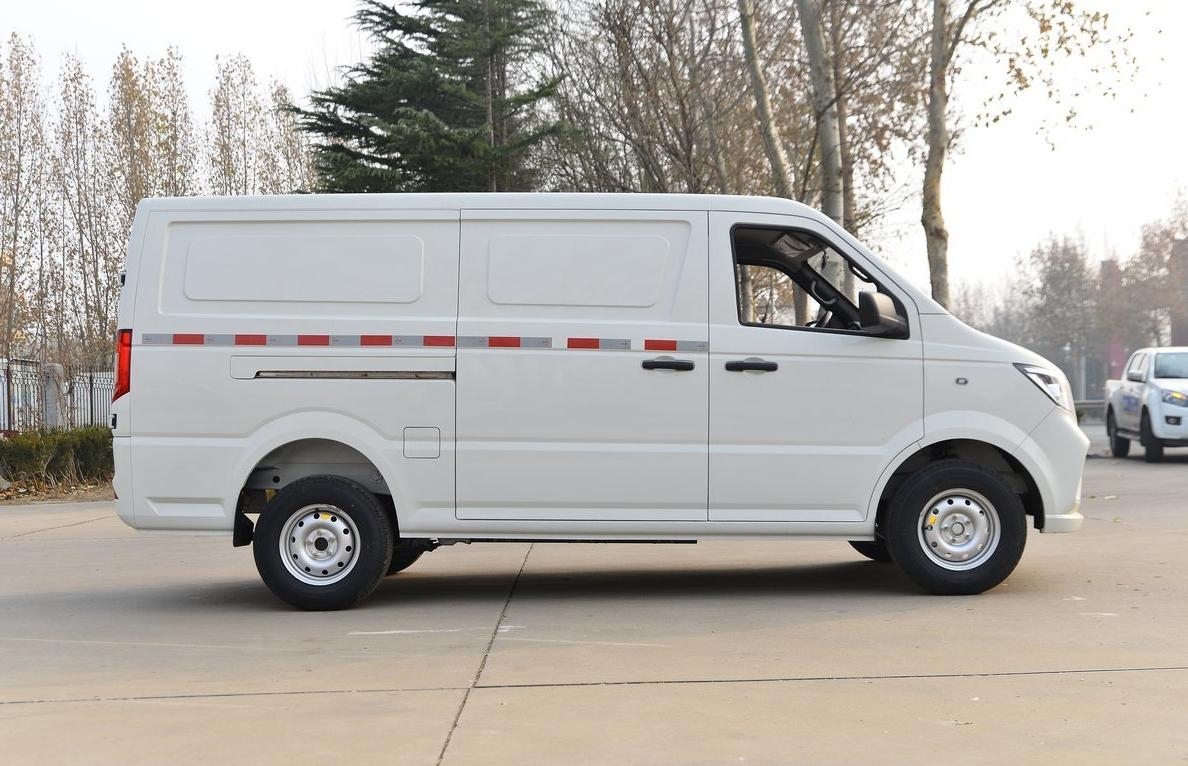Elektriese Vragmotor Nuus
What is the role of electric logistics vehicles?
Geplaas op deur Elektriese vragmotors
In today’s rapidly evolving transportation and logistics landscape, elektriese logistieke voertuigs have emerged as a significant and innovative solution. These unique vehicles, which are driven by on-board power sources and serve as mobile container equipment for transporting and storing material units, play a crucial role in various aspects of modern commerce and industry. Also known as electric vehicle logistics vehicles, electric logistics transfer vehicles, and electric cargo turnover vehicles, elektriese logistieke voertuigs can be further divided into two types based on the motor driving principle: DC electric drive vehicles and variable frequency elektriese logistieke voertuigs. Now, let’s take a detailed look at the multifaceted role of elektriese logistieke voertuigs.
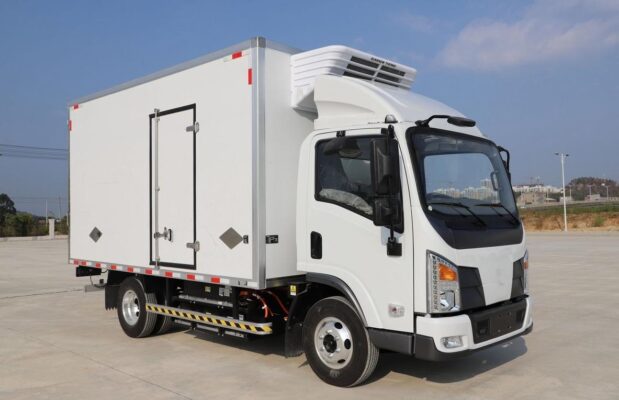
- Role in the logistics and manufacturing industries
Electric logistics vehicles are commonly used in the logistics industry and in the process of factory production. They offer several important advantages that contribute to efficient operations and improved safety.
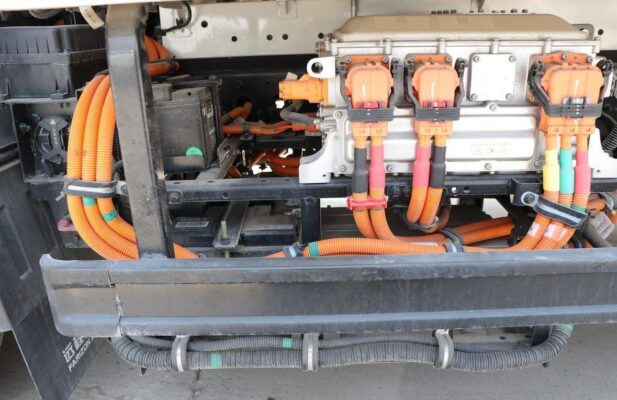
Eerstens, as a handling tool, these vehicles ensure that goods are not damaged during transportation and handling. The careful design and construction of elektriese logistieke voertuigs provide a stable and secure environment for cargo. This is particularly important for fragile or delicate items that require special care. By minimizing the risk of damage, elektriese logistieke voertuigs help to maintain the quality of products and reduce losses for businesses.
At the same time, they ensure the safety of workers. Traditional manual handling of heavy loads can pose significant risks to workers, including back injuries and other musculoskeletal problems. Electric logistics vehicles take on the burden of transporting heavy items, reducing the physical strain on workers and minimizing the likelihood of workplace accidents. This not only protects the well-being of employees but also reduces potential liability costs for businesses.
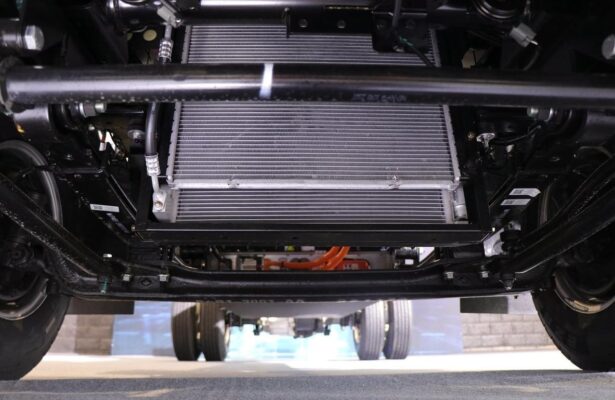
Bowendien, elektriese logistieke voertuigs have a relatively reduced weight compared to some traditional transportation methods. This lighter weight makes them more maneuverable and easier to operate in various environments. Whether in a crowded warehouse or on narrow city streets, these vehicles can navigate with ease, saving time and effort.
The trolley design of elektriese logistieke voertuigs is both beautiful and practical. Their aesthetically pleasing appearance can enhance the professional image of a business, while their practical features make them highly functional. With high mobility, they can quickly move between different locations within a logistics network or manufacturing facility, ensuring smooth and efficient flow of goods.
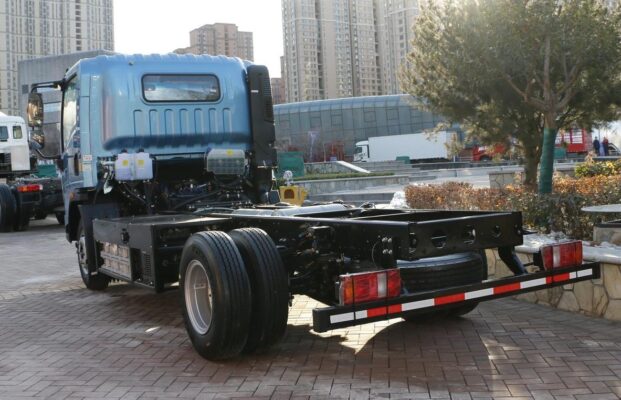
As for their specific functions in the logistics and manufacturing industries, there are several key points. First, they can make the production line space operate as much as possible. In a manufacturing environment, space is often at a premium. Electric logistics vehicles can be used to transport materials and components between different stages of production, allowing for a more organized and efficient use of available space. This helps to optimize the production process and increase productivity.
Second, they can help in planning production. By providing a reliable and consistent means of transporting materials, elektriese logistieke voertuigs enable businesses to better manage their production schedules and resources. This can lead to more accurate forecasting, reduced waste, and improved overall efficiency.
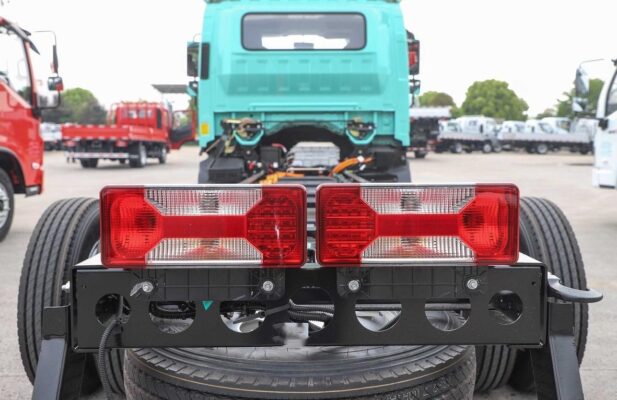
Third, they are the mainstream for product handling and ensure the safety and reliability of personnel and goods during handling. In an era where safety and quality are of utmost importance, elektriese logistieke voertuigs offer a dependable solution for moving products from one place to another. Their stability and security features give businesses and consumers confidence in the integrity of the supply chain.
Fourth, elektriese logistieke voertuigs often have large storage space. This allows for the transportation of a significant amount of goods in a single trip, reducing the number of trips required and increasing efficiency. Daarbenewens, their flexible application means that they can be used for a variety of tasks, from transporting raw materials to delivering finished products. Some models can even be folded and stored when not in use, saving valuable space in warehouses or storage areas.
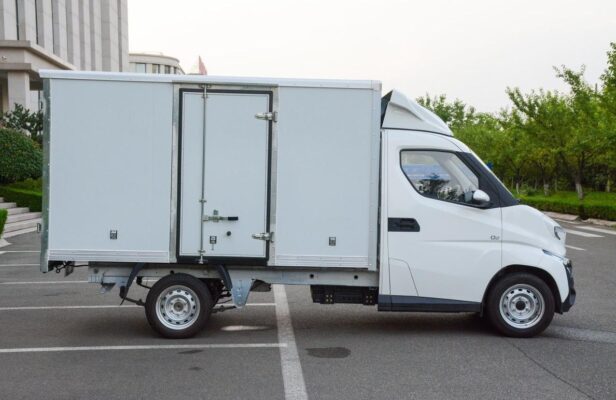
Fifth, many elektriese logistieke voertuigs come with signage, making the process operation clear. This is particularly useful in complex logistics operations where multiple tasks and destinations are involved. The signage helps workers quickly identify the contents and destination of each vehicle, reducing confusion and errors. The transportation provided by these vehicles is lightweight and flexible, and operation is simple, requiring minimal training for operators.
Sixth, elektriese logistieke voertuigs have high mobility and a beautiful structure. Their sleek design not only looks appealing but also contributes to their functionality. The surface electrostatic spray treatment gives them a durable finish that can withstand the rigors of daily use, ensuring a long service life. This makes them a cost-effective investment for businesses in the long run.
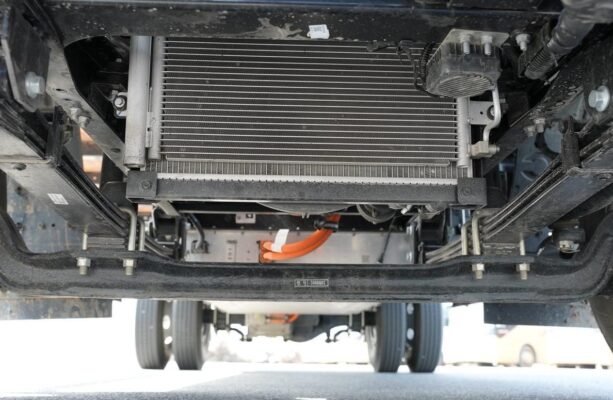
Seventh, with professional design, these vehicles are convenient to operate, saving time and labor. They are widely used in the logistics distribution industry and processing manufacturing industry. For handling small items, they are an essential choice, and they also have multiple uses for storage and display. Their versatility makes them a valuable asset for businesses of all sizes.
Eighth, elektriese logistieke voertuigs offer quick and convenient loading and unloading. This saves a significant amount of time compared to traditional methods, increasing overall productivity. They can also save more than eight times the storage space, making them ideal for businesses with limited storage capacity.
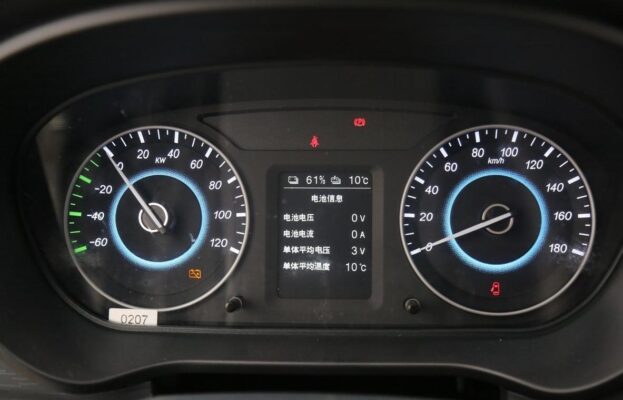
In addition to their role in transporting goods, elektriese logistieke voertuigs can also be used for storing spare parts on the production line. This keeps spare parts organized and easily accessible, promoting more standardized temporary storage in production. It is convenient for assembly lines and improves work efficiency by reducing the time spent searching for and retrieving parts. Transporting materials according to the line is fast and correct without errors, ensuring a smooth flow of production.
- Impact on logistics costs and environmental sustainability
Electric logistics vehicles also have a significant impact on logistics costs and environmental sustainability. Unlike traditional vehicles that run on gasoline, elektriese logistieke voertuigs do not use fossil fuels, which can save a lot of costs in the logistics link. Gasoline prices can fluctuate significantly, and the cost of fuel can be a major expense for logistics companies. By using electric vehicles, businesses can reduce their reliance on expensive gasoline and potentially save a significant amount of money over time.
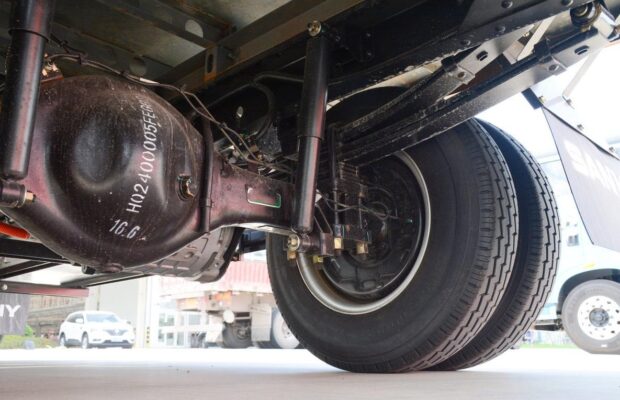
If the demonstration operation of elektriese logistieke voertuigs is successful and they can be widely promoted, in the long run, it is conducive to the reduction of overall logistics costs. Although the initial investment in electric vehicles may be higher than that of traditional vehicles, the savings in fuel costs and maintenance can quickly offset this investment. Daarbenewens, as technology continues to advance, die koste van elektriese voertuie sal na verwagting daal, making them even more accessible and cost-effective.
Egter, due to the relatively small number of operations currently, the actual cost reduction may not be too obvious in the short term. Relevant leaders of the Beijing Municipal Commission of Commerce also believe that at present, the role of elektriese logistieke voertuigs is more of a testing and demonstration. But even so, these vehicles are still an important step towards a more sustainable and cost-effective logistics industry.
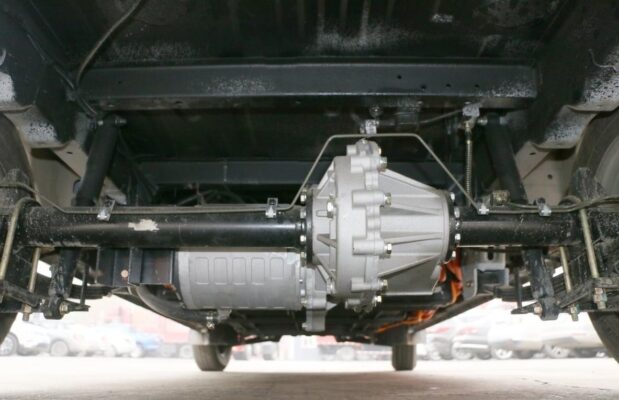
It is reported that in the coming year, these pure electric vehicles will undertake various important tasks. They will be used for the deployment and distribution of fresh agricultural products, ensuring that fresh produce reaches consumers quickly and efficiently. They will also be involved in e-commerce ingredients and marketing for the catering industry, supporting the growing demand for online food delivery. Daarbenewens, they will handle cargo distribution for headquarters warehouses and express logistics enterprises for end customers, improving the speed and reliability of last-mile delivery. In areas such as hutongs, where traditional vehicles may have difficulty accessing, elektriese logistieke voertuigs can play a crucial role in ensuring the delivery of goods to residents and businesses.
Ter afsluiting, elektriese logistieke voertuigs play a vital role in modern logistics and manufacturing. They offer numerous advantages, including improved safety, increased efficiency, and cost savings. As the world continues to focus on sustainable transportation solutions, elektriese logistieke voertuigs are likely to become even more important in the years to come. Whether it’s transporting goods within a factory, delivering products to customers, or reducing logistics costs, these innovative vehicles are a valuable asset for businesses and society as a whole. If you have any questions about elektriese logistieke voertuigs, feel free to contact us at any time.
